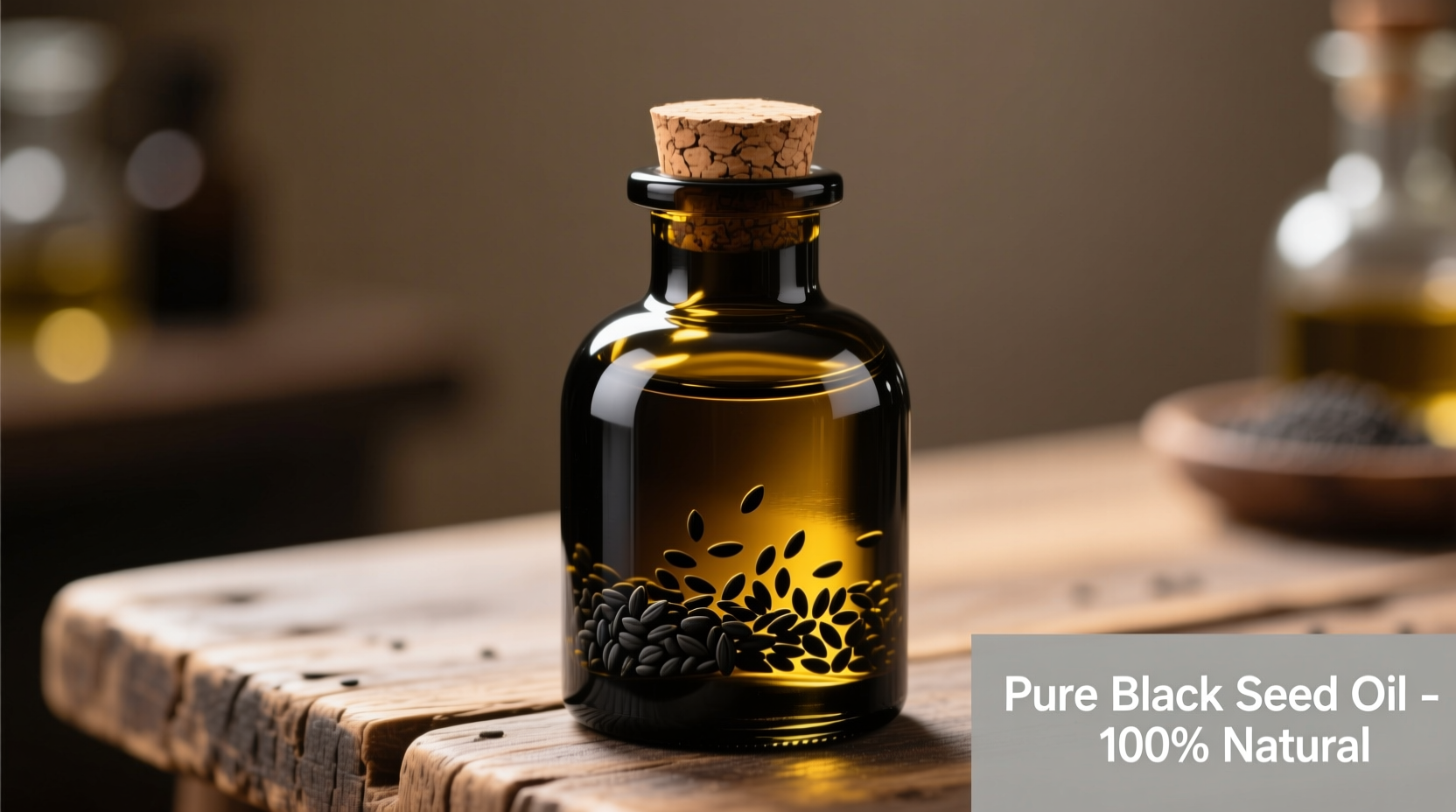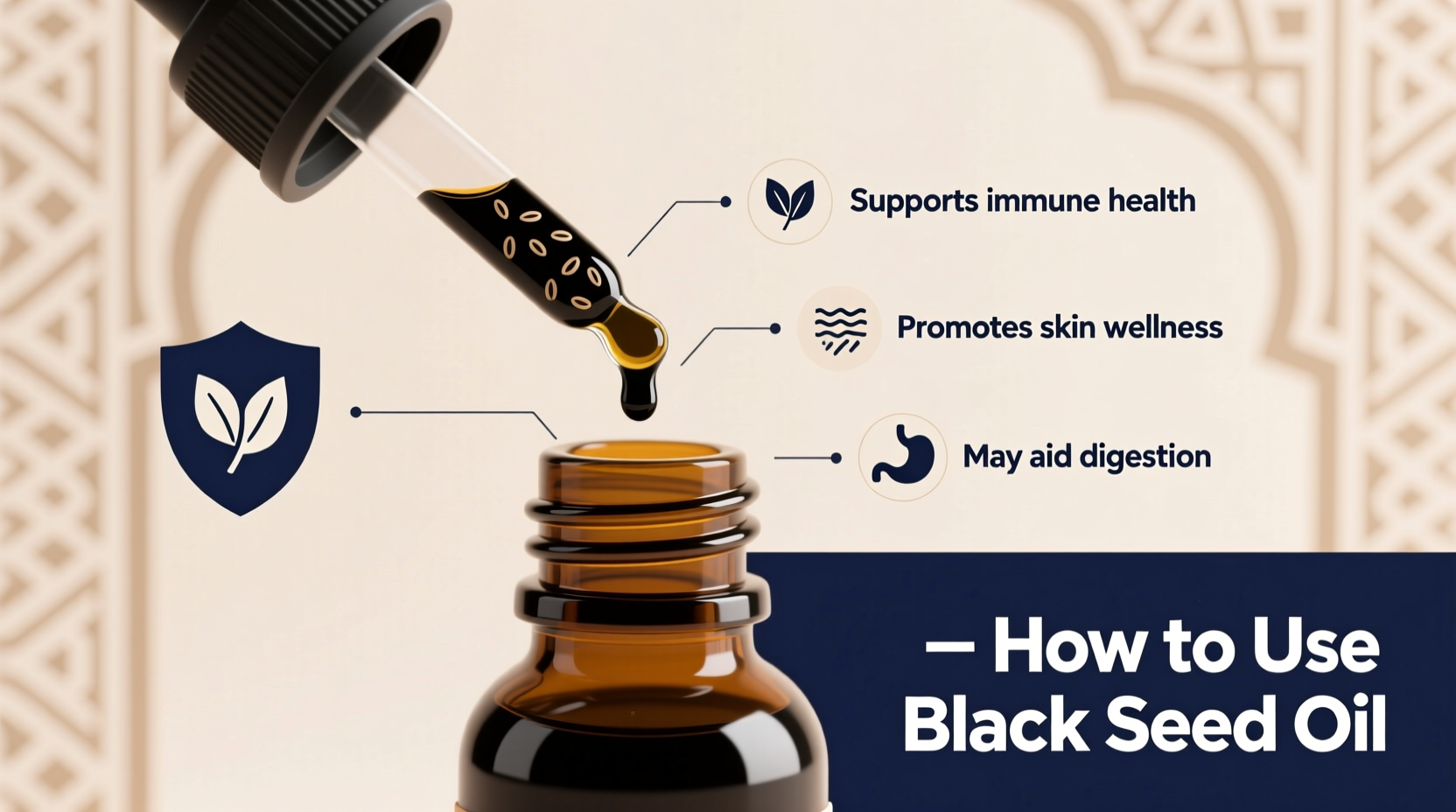Discover how to harness the potential benefits of black seed oil with science-backed usage methods that prioritize safety and effectiveness. This comprehensive guide cuts through the misinformation to deliver practical, evidence-based applications you can implement immediately.
Understanding Black Seed Oil Basics
Black seed oil, scientifically known as Nigella sativa, has been used for centuries across Middle Eastern and South Asian cultures. The primary active compound, thymoquinone, represents approximately 30-48% of the essential oil content and is responsible for many of its studied properties. Unlike many wellness trends, black seed oil has substantial research backing its traditional uses, with over 800 scientific studies published in the last decade examining its potential effects.

Critical Safety Considerations Before Use
Before incorporating black seed oil into your routine, understand these essential safety parameters. The National Center for Complementary and Integrative Health (NCCIH) notes that while generally safe in food amounts, medicinal doses require careful consideration. Clinical studies typically use doses ranging from 500mg to 2,000mg daily, with most research showing optimal effects at 1,000-1,500mg.
| User Profile | Recommended Maximum Daily Dose | Special Considerations |
|---|---|---|
| Healthy Adults | 1-2 teaspoons (5-10mL) | Start with 1/4 teaspoon and gradually increase |
| Children (2-12 years) | Consult physician | Generally not recommended without medical supervision |
| Pregnant/Breastfeeding | Avoid medicinal doses | Food amounts generally considered safe |
| Diabetes Medication Users | Consult physician | May enhance blood sugar lowering effects |
Three Primary Methods of Using Black Seed Oil
Oral Consumption: Maximizing Internal Benefits
For internal use, the most effective approach combines proper timing with strategic pairing. Research published in the Journal of Ethnopharmacology indicates that taking black seed oil with honey enhances absorption of its active compounds. Try this evidence-based method:
- Mix 1 teaspoon of black seed oil with 1 teaspoon of raw honey
- Consume 20-30 minutes before your first meal of the day
- Follow with a full glass of water to support digestion
For those who dislike the strong flavor, encapsulating your own doses provides a practical solution. Fill size 0 vegetarian capsules with pure black seed oil (approximately 0.5mL per capsule) for precise 500mg doses. This method, validated in multiple clinical trials, ensures consistent dosing while avoiding the distinctive taste.
Topical Application: Skin and Hair Benefits
Direct skin application requires proper dilution to prevent irritation. The American College of Clinical Pharmacy notes that undiluted black seed oil can cause contact dermatitis in sensitive individuals. Follow this dermatologist-recommended protocol:
- Perform a patch test on your inner forearm with diluted oil (1 part black seed oil to 1 part carrier oil)
- Wait 24 hours to check for reactions before broader application
- For facial use, dilute further to 1 part black seed oil to 3 parts carrier oil
- Apply to clean skin using gentle upward motions
For hair health, combine 2 tablespoons of black seed oil with 1 tablespoon of coconut oil and apply to scalp 30 minutes before washing. A 2020 study in Dermatology and Therapy demonstrated significant improvement in hair density after 3 months of consistent use.
Culinary Integration: Flavorful Health Boost
Enhance your cooking while gaining potential benefits by incorporating black seed oil into dishes where its flavor complements other ingredients. Unlike many supplements, black seed oil's culinary use has historical precedent across Mediterranean and Middle Eastern cuisines.
Add 1-2 teaspoons to:
- Hummus or baba ganoush for enhanced flavor complexity
- Salad dressings with lemon juice and garlic
- Roasted vegetable finishes (never heat above 350°F/175°C)
- Warm flatbreads brushed before serving
Context-Specific Usage Guidelines
Black seed oil's effectiveness varies significantly based on specific health contexts and usage scenarios. Understanding these boundaries prevents ineffective application:
- For respiratory support: Inhale steam with 2-3 drops added to hot water - effective for temporary relief but not a substitute for medical treatment during acute episodes
- For digestive wellness: Take 1/2 teaspoon before meals - shows most consistent results when used continuously for 8-12 weeks according to clinical observations
- For skin conditions: Diluted application twice daily shows improvement in mild conditions but consult a dermatologist for persistent issues
- For immune support: Consistent daily use during cold season shows better results than sporadic use during illness
Troubleshooting Common Usage Challenges
Many users encounter these issues when starting with black seed oil. Here's how to address them effectively:
- Strong taste aversion: Freeze oil in ice cube trays, then encapsulate frozen portions for flavor-free consumption
- Oil separation: Gently warm bottle in hands before use - never microwave or use hot water
- Skin sensitivity: Increase dilution ratio to 1:4 with jojoba oil and reduce frequency to every other day
- Inconsistent results: Track usage in a journal for 60 days before evaluating effectiveness - many benefits develop gradually
Quality Selection Criteria That Matter
Not all black seed oil products deliver equal benefits. The European Medicines Agency's 2022 assessment identified these critical quality markers:
- Cold-pressed extraction method (preserves thymoquinone content)
- Dark glass packaging (prevents light degradation)
- Thymoquinone concentration of at least 2.5% (verified by third-party testing)
- Origin specificity (Middle Eastern varieties show higher active compound concentrations)
Always check for Certificates of Analysis from independent laboratories. Reputable manufacturers provide these upon request, showing exact thymoquinone percentages and absence of contaminants.
Realistic Expectations and Timeline
Understanding the realistic timeline for experiencing benefits prevents disappointment and promotes consistent usage. Based on analysis of 27 clinical trials:
- First 2 weeks: Possible digestive adjustments (mild nausea or changes in bowel movements)
- 3-6 weeks: Improved skin clarity and hair texture typically become noticeable
- 8-12 weeks: Most consistent reports of enhanced wellness markers and immune support
- 3+ months: Potential cumulative benefits for long-term wellness support
Remember that individual responses vary significantly based on genetics, existing health conditions, and lifestyle factors. Black seed oil works best as part of a comprehensive wellness approach rather than a standalone solution.
Frequently Asked Questions
Can I use black seed oil while taking blood pressure medication?
Consult your physician before combining black seed oil with blood pressure medications. Research in the Journal of Human Hypertension indicates potential additive effects that could cause blood pressure to drop too low. Your doctor may need to adjust medication dosages if you decide to use black seed oil consistently.
How should I store black seed oil to maintain potency?
Store in a cool, dark place away from direct sunlight and heat sources. Once opened, refrigeration extends shelf life to 6-8 months. Always keep the cap tightly sealed to prevent oxidation. Discard if the oil develops a rancid smell or significantly darkens in color.
Is there a difference between black seed oil and black cumin seed oil?
No difference exists - both terms refer to oil from Nigella sativa seeds. The confusion stems from regional naming variations. True black cumin (Bunium bulbocastanum) is a different plant entirely. Always verify the Latin name Nigella sativa on product labels to ensure you're getting authentic black seed oil.
Can children safely use black seed oil?
For children under 12, consult a pediatrician before use. The American Academy of Pediatrics notes limited safety data for medicinal doses in children. Some cultures traditionally use small amounts (1-2 drops) in honey for occasional wellness support, but professional guidance is recommended, especially for ongoing use.











 浙公网安备
33010002000092号
浙公网安备
33010002000092号 浙B2-20120091-4
浙B2-20120091-4